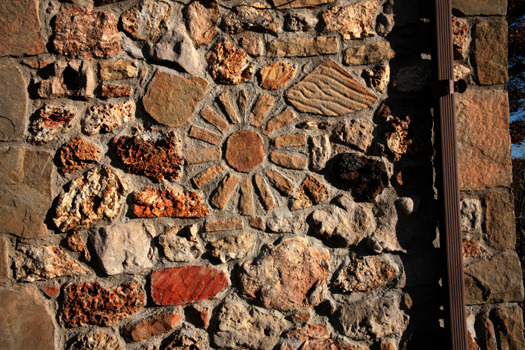
John Foster|Accidental Mysteries
October 6, 2013
Giraffe Houses of the Ozarks
The Ozark Mountain area of south central Missouri, northern Arkansas and parts of Oklahoma has always been home to resourceful people who know how to build things with their hands. In fact, these hard scrabble folks had been “making-do” long before the Great Depression. These people were largely cut off from city life, and kept the culture of their forebearers for generations. Often called “hillbillies,” many of these people made their own houses, quilts, soap, clothes and were self-sustaining out of necessity. As post-war America saw more and more expansion into the area by the growing migratory population, people with construction skills building houses, businesses and churches were in high demand. And if you drive through the Ozarks today, many of these structures show the idiosyncratic signs of their makers — a quirky roofline here, and odd porch detail there — or if in stone, details can be seen that showcased an aesthetic choice by the builder.
I saw the first quirky orange stone house nearly 20 years ago when driving my now adult daughter to a summer camp in rural, southern Missouri. Just off historic Route 66, there wasn’t just one, but within the hour I counted more than a dozen unusual structures along the way. While the orange-red slabs of limestone were cut or broken into irregular shapes, what struck me was the extremely wide, white mortar between the stones. This was something that I had never seen and, though I was not able to photograph them that day, the memory of them was etched in my mind. It wasn’t until years later that I learned that the locals affectionately called these homes “giraffe” houses. This made perfect sense, as the orange rock with its thick white infill of mortar created a pattern very reminiscent to the hide of an African giraffe.
Giraffe houses are generally thought to have first appeared around 1910, but their acceptance grew during the 1930s by Missouri agricultural extension bulletins, which described how to build a house from indigenous stone. Often used as a veneer over standard frame houses, the thick slabs could be structural as well. But, these makers of slab stone houses used their own sense of design, with starburst patterns and other creative choices of surface decoration to personalize their building process. Consider these builders part of a long tradition of “make-doer’s” in the Missouri Ozark hills.
By the mid-twentieth century, Giraffe house building was a thing of the past. Thankfully, many still stand today — a testament to creativity, hard work and a little ingenuity. Born of a folk tradition, these houses represent just a slice of the rich, indigenous American architecture deserving of remembrance today.
All photographs © by John Foster
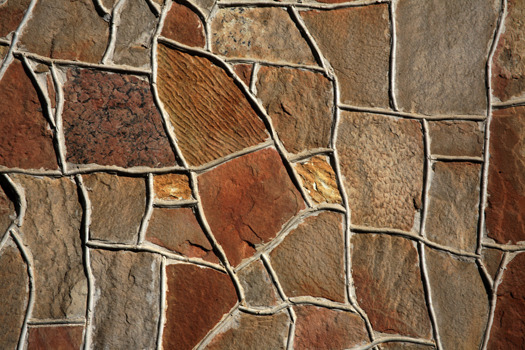
Detail of building wall, Missouri Ozarks
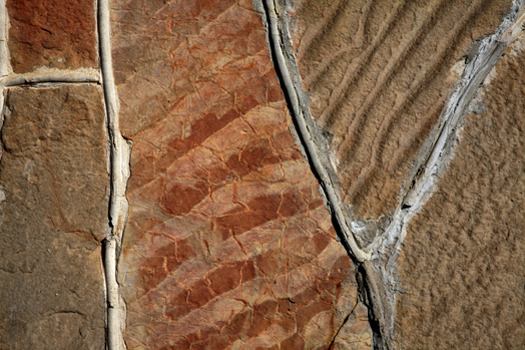
Rocks seem to have been chosen for their variety of color and fossilized striations.
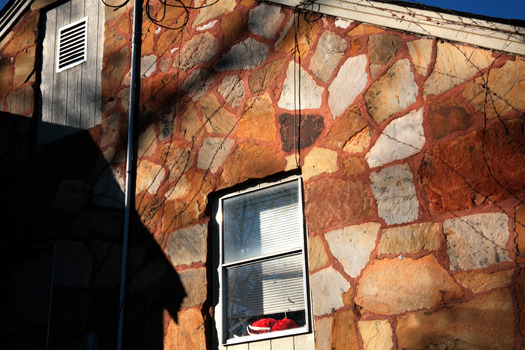
Local houses take on the quality of the the hide of giraffes.
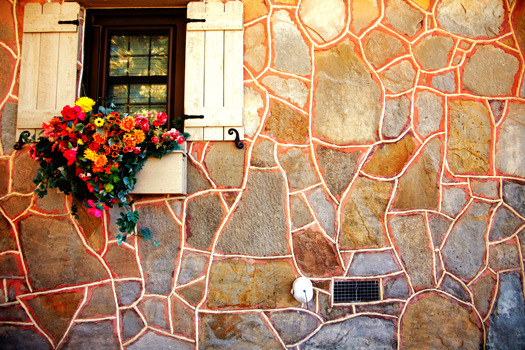
Thick wide mortar is part of the style of these early slab stone home builders.
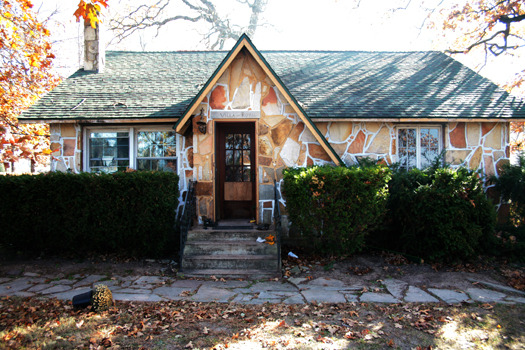
Southern Missouri house near Van Buren.
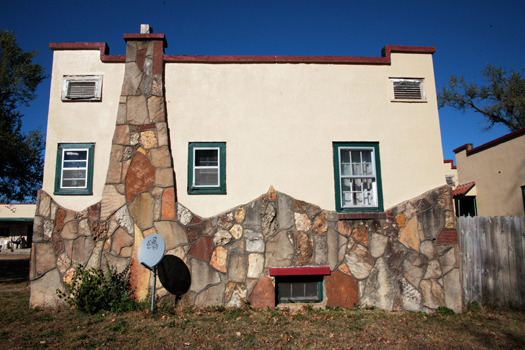
Whether this house was intended to look this bad is up for discussion.

This detail is a geologist’s delight.
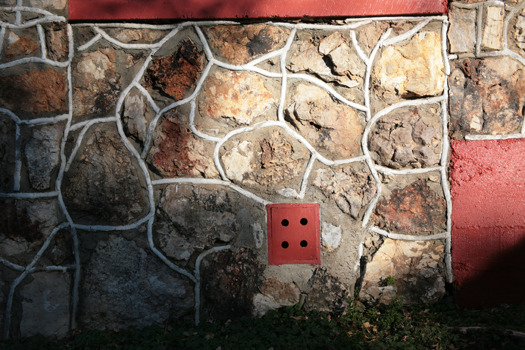
Abstractions are plentiful when photographing this style of home.
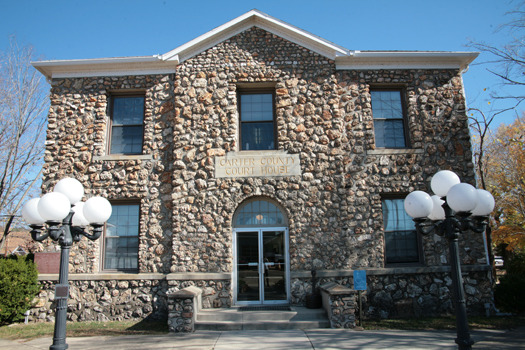
Stone courthouse for Carter County, Missouri.
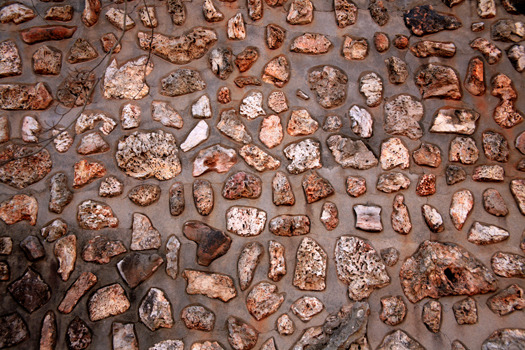
Back wall at Carter County Courthouse.

Early 20th century stone motel now used as apartments.
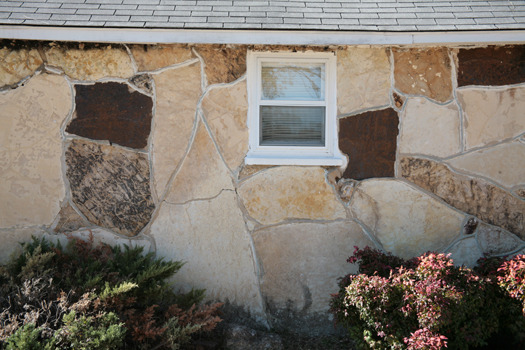
Detail.
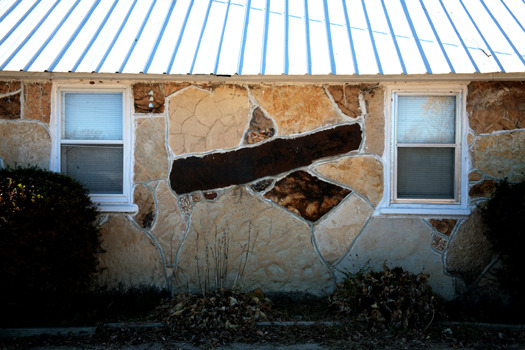
This dark brown rock creates a dramatic wall.
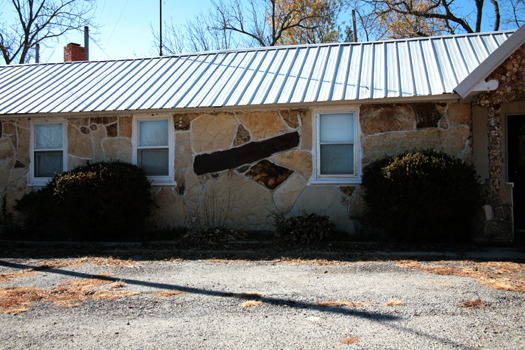
Another view of old motel.
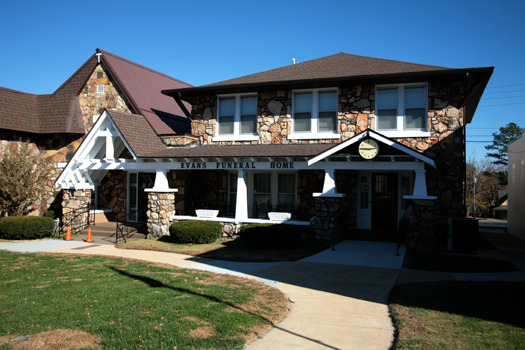
Funeral home (Missouri)
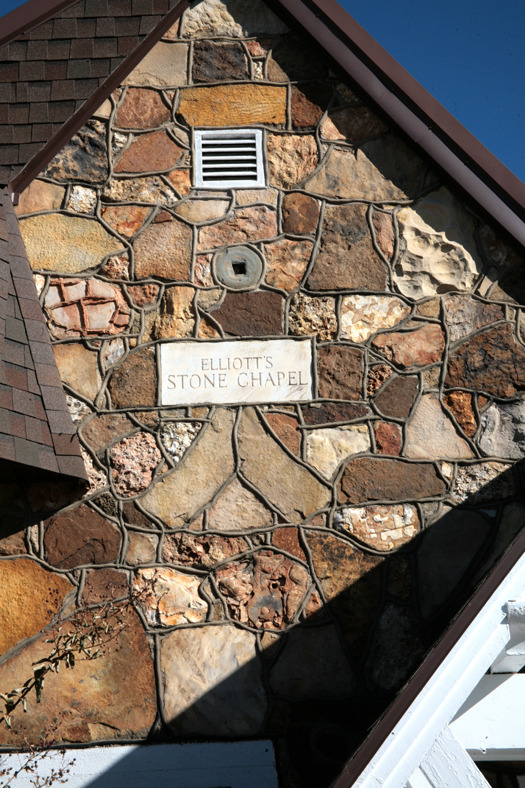
Detail.
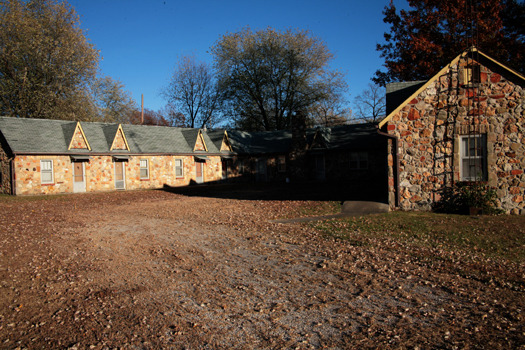
Abandoned stone motel off Route 66.
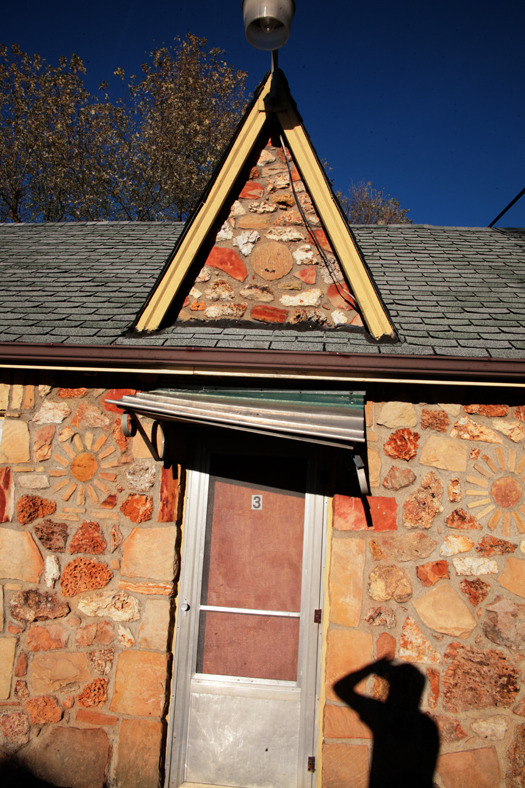
Detail of Route 66 motel.
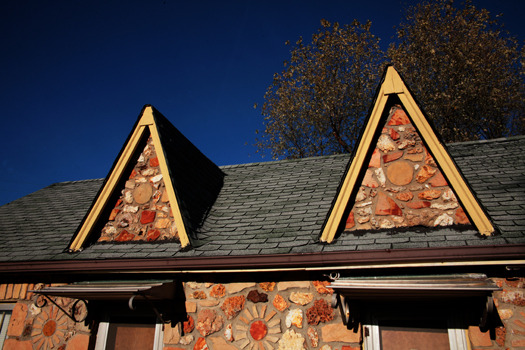
Detail of Route 66 motel.
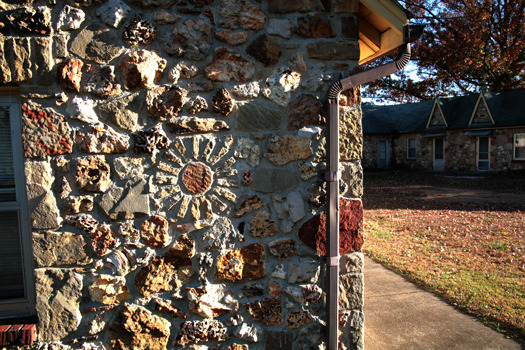
Detail of Route 66 motel showing sunburst pattern.

Close up of stone work.
Observed
View all
Observed
By John Foster
Related Posts
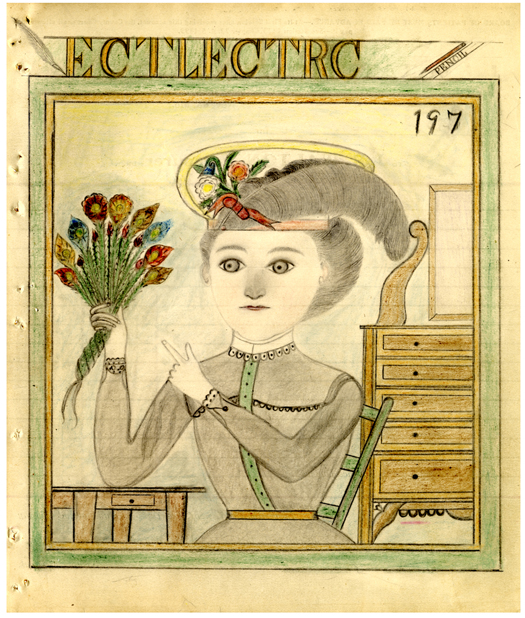
Accidental Mysteries
John Foster|Accidental Mysteries
The Remarkable Mr. Deeds
.jpg)
John Foster|Accidental Mysteries
Doug Rickard: N. A.
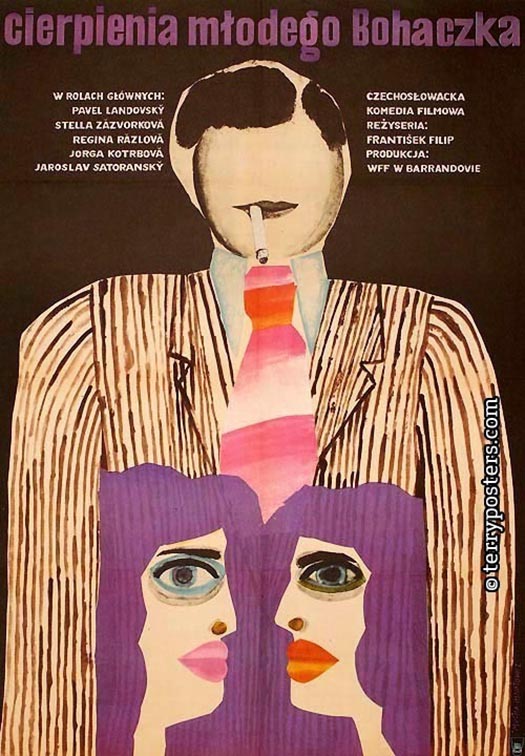
Accidental Mysteries
John Foster|Accidental Mysteries
An Archive of Czech Film Posters
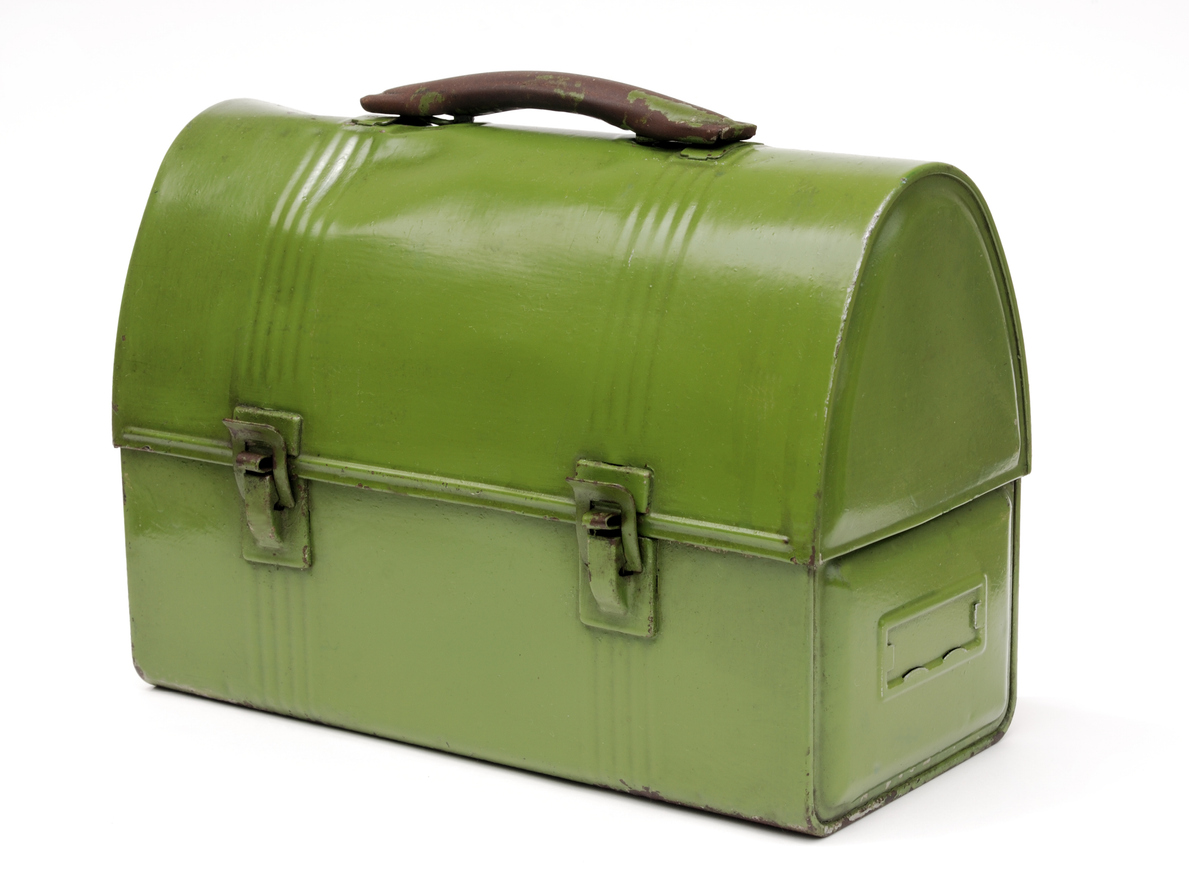
Accidental Mysteries
John Foster|Accidental Mysteries
A Visual History of Lunchboxes
Recent Posts
The identity industrialists Lessons in connoisseurship from the Golden Globes “Suddenly everyone’s life got a lot more similar”: AI isn’t just imitating creativity, it’s homogenizing thinking Synthetic ‘Vtubers’ rock Twitch: three gaming creators on what it means to livestream in the age of genAIRelated Posts

Accidental Mysteries
John Foster|Accidental Mysteries
The Remarkable Mr. Deeds
.jpg)
John Foster|Accidental Mysteries
Doug Rickard: N. A.

Accidental Mysteries
John Foster|Accidental Mysteries
An Archive of Czech Film Posters

Accidental Mysteries
John Foster|Accidental Mysteries

 John Foster and his wife, Teenuh, have been longtime collectors of self-taught art and vernacular photography. Their collection of anonymous, found snapshots has toured the country for five years and has been featured in Harper’s, Newsweek Online and others.
John Foster and his wife, Teenuh, have been longtime collectors of self-taught art and vernacular photography. Their collection of anonymous, found snapshots has toured the country for five years and has been featured in Harper’s, Newsweek Online and others.